It’s like Lenin said: look for the persons who benefit and you will know.
Once upon a time, there was a friendly country, in the South of Europe bordering the Atlantic Ocean, that used to export cork, tinned sardines and cheap labor.
But back in 2008 things changed as a worldwide economic recession forced the country on its knees. No longer able to pay its government debt, it had to beg friends for help and borrowed a total of 76 billion from the IMF and the European Community.
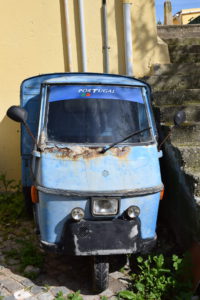 These friends – that now had become creditors – demanded strict measures, that were enthusiastically implemented by the country’s then conservative government. It started raining austerities for many years and the people suffered.
These friends – that now had become creditors – demanded strict measures, that were enthusiastically implemented by the country’s then conservative government. It started raining austerities for many years and the people suffered.
There were massive cuts in education, health services, and social spending. Salaries plummeted, poverty increased and unemployment skyrocketed to a record 17% in 2013.
But at the end of 2015, the sun broke through the dark clouds and a brand-new socialist government – with the support of more radical parties like the Left Bloc and the Communist Party – came to power. Never before had a coalition of the Democratic Left-ruled the country. Not even in 1975, when the Carnation Revolution re-established democracy.
The message of the new government was crystal clear. Stop austerity measures and increase demand. ‘By refunding income to the people in a moderate way, people get confidence and investment returns’, explains economy minister Manuel Caldeira Cabral.
The new leaders promised to raise the minimum wage, pensions, and social security and a wealth tax was introduced on property valued over 600.000 euro.
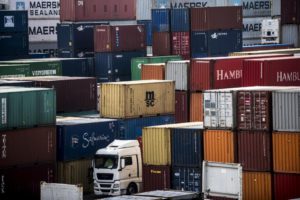 And it worked. Two years after taking power the government is showing an economic growth of 2.5% – the strongest since the beginning of the recession – and a reduction of the deficit by half, lower than ever. Meanwhile, foreign investment jumped 13%, unemployment dropped below 10% and 17 billion (65%) of the loan from the IMF is repaid.
And it worked. Two years after taking power the government is showing an economic growth of 2.5% – the strongest since the beginning of the recession – and a reduction of the deficit by half, lower than ever. Meanwhile, foreign investment jumped 13%, unemployment dropped below 10% and 17 billion (65%) of the loan from the IMF is repaid.
In one year 155.000 new jobs were created – a record in twenty years. Tourism and industry – in particular footwear– are booming and export increases more than import.
In two years’ time, Portugal has not only won the European Football Championship and the Eurovision Song festival for the very first time, it also increased public investment, reduced the deficit, beheaded unemployment and sustained economic growth.
It looks like fairy tales do exist.
BOM FIM DE SEMANA

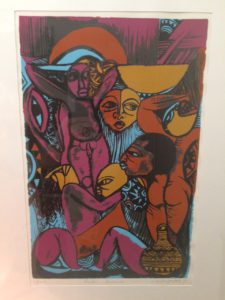 ‘These numbers are shocking’, says Alípio Ribeiro, an attorney from the Criminal Investigation Department and confirm what he already thought: ‘there is a legal system for whites and a legal system for blacks’.
‘These numbers are shocking’, says Alípio Ribeiro, an attorney from the Criminal Investigation Department and confirm what he already thought: ‘there is a legal system for whites and a legal system for blacks’. Celso Manata, head of DGPJ, however, rejects the idea that the legal system is discriminatory. He admits that there is an over-representation of blacks in Portuguese prisons, but believes that ‘this is caused by the poor socio-economic circumstances of black people, who therefore are more likely to commit a crime’.
Celso Manata, head of DGPJ, however, rejects the idea that the legal system is discriminatory. He admits that there is an over-representation of blacks in Portuguese prisons, but believes that ‘this is caused by the poor socio-economic circumstances of black people, who therefore are more likely to commit a crime’.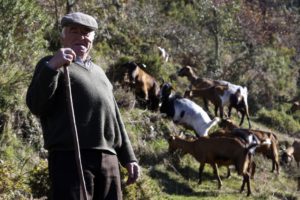 The ‘typical’ Portuguese doesn’t exist in a country that has been occupied by a great number of civilizations – Phoenicians, Romans, Visigoths, Celts, Swabians, and Arabs.
The ‘typical’ Portuguese doesn’t exist in a country that has been occupied by a great number of civilizations – Phoenicians, Romans, Visigoths, Celts, Swabians, and Arabs.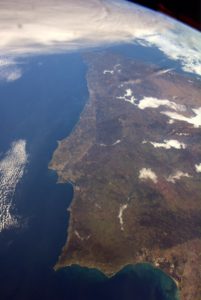 The national territory can – according to the Ministry of Environment – roughly be divided into:
The national territory can – according to the Ministry of Environment – roughly be divided into: July turned out to be one of the driest months in the past 17 years. Water levels in dams and basins have dropped substantially.
July turned out to be one of the driest months in the past 17 years. Water levels in dams and basins have dropped substantially. Although water is scarce, wine is not!
Although water is scarce, wine is not!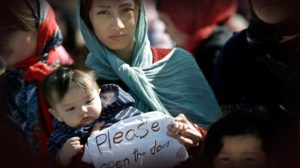 In the meantime, he has been staying in Portugal for over a year, and despite the fact that pre-selection took place in Greece, he’s still waiting for his residence permit.
In the meantime, he has been staying in Portugal for over a year, and despite the fact that pre-selection took place in Greece, he’s still waiting for his residence permit.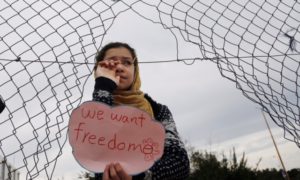 Moreover, they do not find the conditions they hoped for and are distributed across the countryside, while most of them have an urban background. In addition, asylum procedures are very slow, there are problems with the recognition of diplomas and there is a lack of Arabic-speaking interpreters.
Moreover, they do not find the conditions they hoped for and are distributed across the countryside, while most of them have an urban background. In addition, asylum procedures are very slow, there are problems with the recognition of diplomas and there is a lack of Arabic-speaking interpreters.